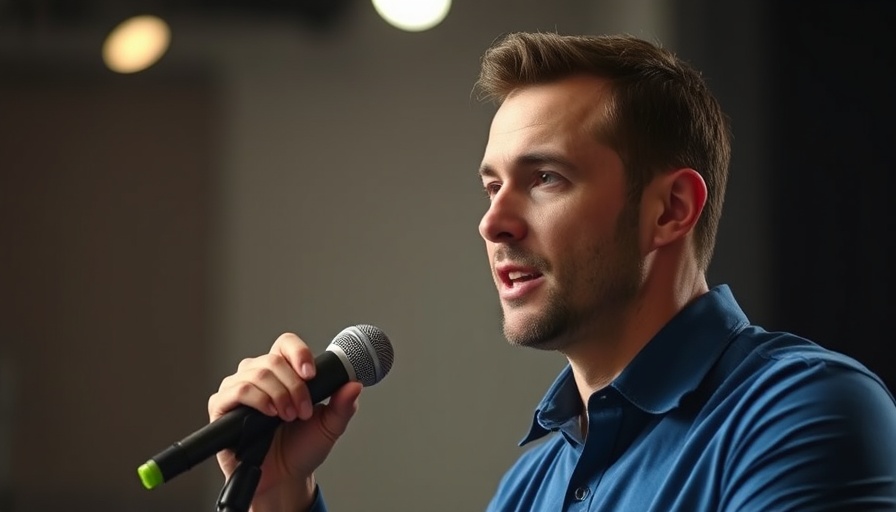
The State of the NFLPA: A Call for Change
In a revealing episode of the Dominique Foxworth Show, discussions about the ongoing turmoil within the NFL Players Association (NFLPA) have sparked fresh conversations around the need for change. With JC Tretter stepping down amidst controversy, players find themselves at a crucial crossroads, where the future of their representation hangs in the balance. As former union members like Foxworth highlight the importance of player engagement, there is a growing sense of optimism that this disarray could pave the way for meaningful reform.
In 'Domonique Foxworth reveals the key to fixing the NFLPA', the discussion dives into the need for reform within the NFL Players Association, exploring key insights that sparked deeper analysis on our end.
A Historical Perspective on Union Leadership
The NFLPA has had its share of influential leaders, but none as prominent as Gene Upshaw, who guided the union through monumental changes for a quarter-century beginning in the late '70s. Upshaw symbolized player power, championing free agency and paving the way for better pension plans. His passing in 2008 marked the end of an era, and since then, the union has struggled to maintain the same level of cohesion among its members.
Understanding how past leaders effectively combined player interests with judicial and financial negotiation provides invaluable lessons for current players and their engagement with the NFLPA's process. This historical context is crucial: it reflects the East-West divide between the benefits gained through teamwork and the silos created by personal ambitions within the league.
Why Engagement Is the Key to Progress
As Foxworth points out, the current disarray could serve as a catalyst for change. With increased player interest following recent controversies, engagement is at the forefront of the discussion. The more players who become actively involved, the stronger the union will be. Foxworth argues that the current situation represents an opportunity rather than a crisis, citing that this liminal space may lead to positive transformation for the players’ constituency.
This grassroots engagement echoes throughout history. Unity becomes essential when negotiating with powerful leagues. Should players educate themselves about the inner workings of the NFLPA, they may find that they wield more power than they realize, especially when voicing their concerns collectively.
Rebuilding Trust in Leadership
With the departure of both JC Tretter and Lloyd Howell, the NFLPA faces a rebuilding phase. Leadership selection is paramount; the next executive director must engage players instead of resting on institutional hierarchy. There is a risk that potential candidates, especially outsiders, may lack the necessary connection with the rank and file. Foxworth emphasizes that true leadership will only emerge from those who prioritize players' needs over personal ambitions.
Critical insights are revealed through the lens of effectiveness in union leadership. If a leader isn't steeped in the struggles and aspirations of their constituents, they might undermine collective efforts for better representation. This week's events reiterate the importance of resolving existing leadership dynamics while reviewing what meritorious traits a new executive director must have to draw in the eyes and ears of all players.
Emphasizing Solidarity for Future Negotiations
Solidarity stands as the foundation for any successful negotiation strategy, and the current climate stresses collaboration among players. Foxworth makes it evident that past approaches focused on individual gains undermined the NFLPA's strength. When considering critical player issues, collective bargaining rights, and the threat of work stoppages, it is imperative that all active and former players understand the direct connection between their unity and their bargaining power.
With plenty of conflict and dissent brewing, the conversation around player solidarity cannot be overemphasized. This moment provides the groundwork for establishing a more substantial and resilient foundation for upcoming negotiations as the NFL looks towards reshaping its collective bargaining agreements in 2030. This moment of introspection could redefine the relationship between players and management moving forward.
Personal and Collective Sacrifice as a Path to Progress
Foxworth eloquently exposes the reality that any substantial change requires sacrifice. It is an uncomfortable truth that requires players to weigh their immediate benefits against long-term gains for themselves and their peers. This resonates profoundly with many athletes facing the pressure to make quick decisions in favor of individual success—but the true victory lies within their willingness to endure short-term discomfort for the collective good of the union.
As the union proceeds with reform discussions, pressing up against the reality of what lies ahead in terms of negotiations with NFL owners demands active participation from all. Thus, educating players on the nuances of their unique leverage points will allow them to navigate this negotiation landscape with confidence.
Conclusion: Take Action and Engage
As we reflect on the current state of the NFL Players Association and its future amidst the recent upheavals, it becomes clear: player engagement is not just a mere benefit—it's a prerequisite for the survival of the union. Fans and players alike must remain vigilant and involved in advocating for workers’ rights in sports, challenging the narrative that football is merely a transactional business devoid of a deeper human connection.
It's crucial to stay informed: follow updates on NFL news, engage with fellow fans and players online, and discuss which avenues of reform you want to see in the future. As we push forward into training camps and the upcoming season, let’s advocate for a more robust and engaged NFLPA that truly reflects the voice of its players. Your involvement is the beginning of transformative change!
 Add Element
Add Element  Add Row
Add Row 



Write A Comment